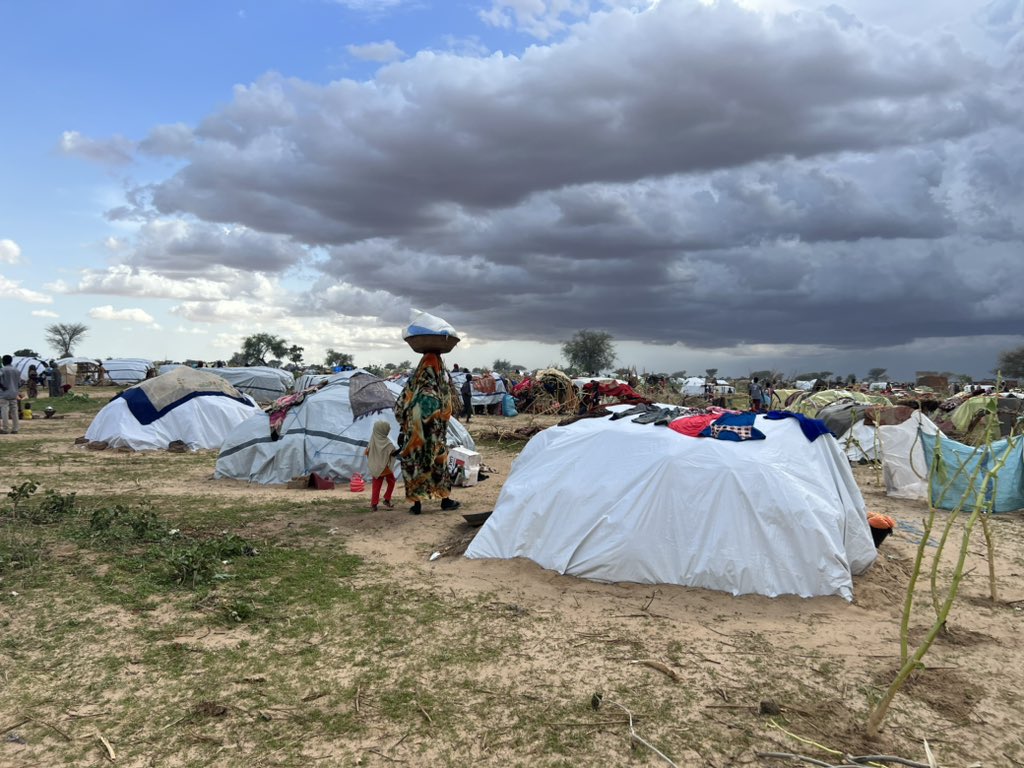UN OCHA calls for safety measures for Sudan civilians

As many as 120,000 Sudanese fled the conflict in West Darfur and now live in dire conditions across the border in Chad (social media)
The United Nations humanitarian coordinator in Sudan, Clementine Nkweta-Salami, expressed concern on Wednesday about the persistent maltreatment of civilians, including refugees, as the conflict enters its fourth month.
In a statement, Nkweta-Salami condemned the unjust targeting and killing of vulnerable individuals in the ongoing war, demanding an immediate halt to the war. She also states that “*refugees are trapped in combat zones, facing abuse, and robbery while seeking safety”.
She called for the parties involved to guarantee secure passage for civilians escaping violence in Khartoum, Darfur, and other active combat zones, while upholding their responsibilities to adhere to international humanitarian and human rights laws.
Notably, 28 refugees in Khartoum lost their lives during violent clashes on June 25, which Salami regarded as yet another distressing reminder of the challenges faced by refugee populations.
The UN reports that certain civilians attempting to escape violent confrontations in the West Darfur town of Sirba on July 26 were prevented from crossing the border into Chad.
In an earlier report, Sheikh Suleiman Ibrahim, who fled to Chad, told Radio Dabanga of the ethnic cleansing as well as the tragic details of attacks launched by the paramilitary Support Forces and allied Arab gunmen on Sirba.
Darfuri refugees in eastern Chad live in dire humanitarian conditions in the absence of food, shelter materials, and tarpaulins, Ibrahim said. A group of doctors came to them to examine the wounded.
He appealed to aid organisations to intervene urgently to save them by providing food, medicine, and shelter materials.
Sudanese in Ethiopia
As the conflict between Ethiopia’s military and local militias intensifies in the Amhara region, the plight of hundreds of Sudanese trapped in the cities of Bahir Dar and Gondar has worsened, leading to heightened distress over deteriorating humanitarian conditions.
The closure of transportation routes and flight suspensions to Addis Ababa has left them confined, resulting in closed businesses, scarce food, and disrupted internet services.
Urgent appeals have been directed to the Sudanese embassy in Addis Ababa, as some individuals face the dual challenges of expiring visas and financial hardships.
Ethiopian Airlines said it would resume flights from Addis Ababa to Bahir Dar and Gondar on Thursday.
*Disambiguation: Those displaced within their own country are referred to as internally displaced people. They officially become ‘refugees’ once they cross an international border into a second country.








 and then
and then